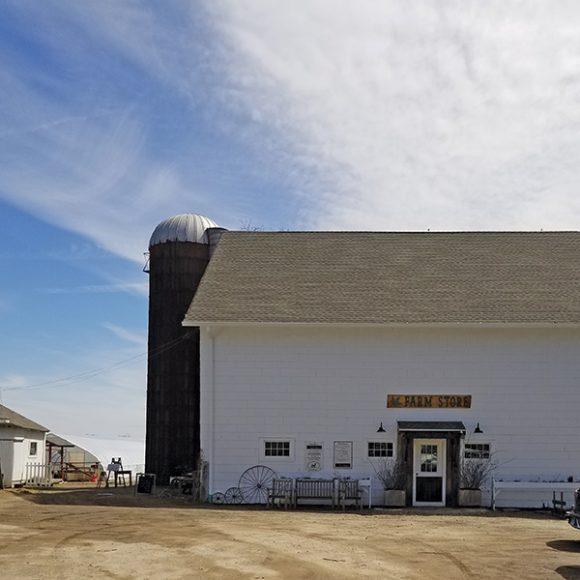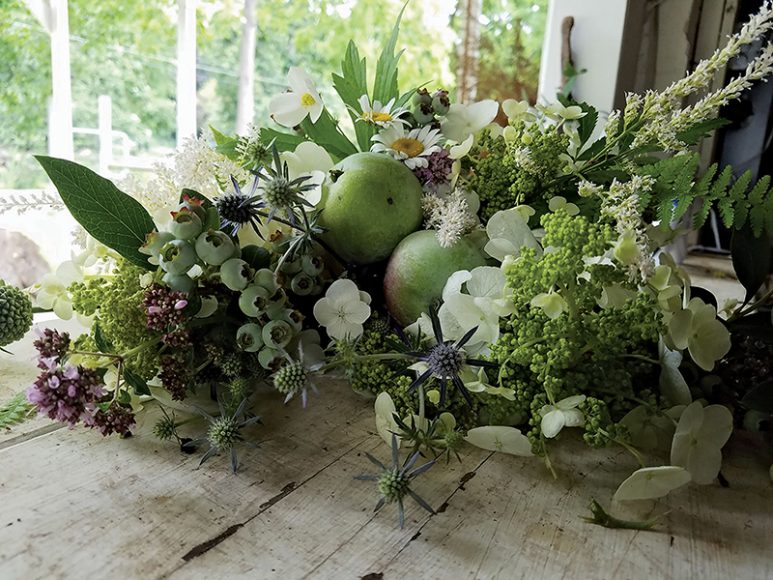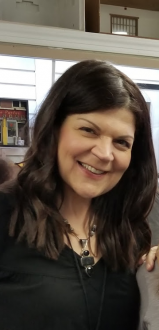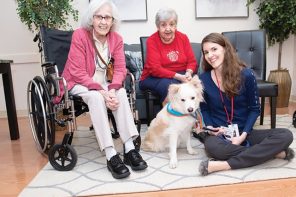When Dina Brewster assumed operations at The Hickories in 2004, she started shaking things up, and she’s been at it ever since.
Her grandparents acquired the long-established Ridgefield farm in 1936, but only under Dina’s young stewardship has it been run as a for-profit business and a sustainable one at that. Following a three-year certification process, its 100 acres — 45 of which are utilized for production — became fully USDA-certified organic in 2007. During a brief but exhilarating visit, the question utmost on my mind was answered succinctly and brilliantly: Organic flower farming is a movement and one that’s worth getting behind for the betterment of the planet.
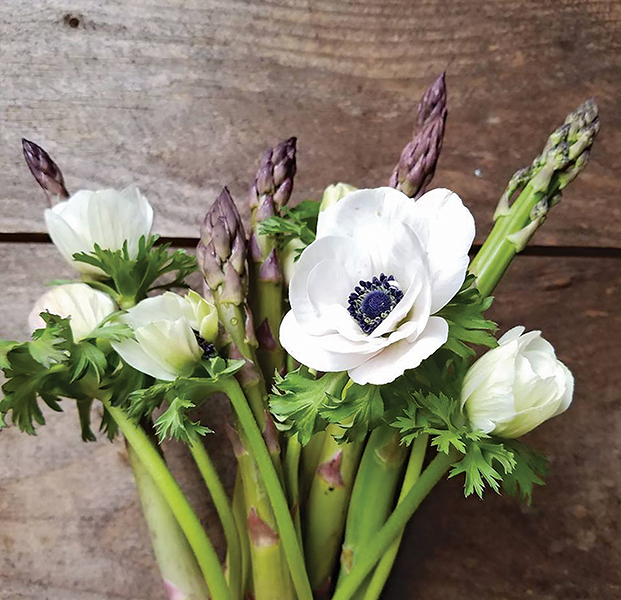
Dina is emblematic of the young farmers taking their respective farmlands to new heights. She explains that what began as a “conventional, chemical-based farm of the yellow corn and round, red tomato variety” now produces some 160 crop varietals. As part of the effort to manage the land better, The Hickories also raises livestock. Pigs, sheep and chickens work the soil and consume the yield overruns, plus the many varieties of beautiful, fragrant stems that attract pollinators — you know, the flowers.
The Hickories is so much about the flowers, in fact, that it offers customers CSA (Community Supported Agriculture) subscriptions in flowers alone, or they can be added to a produce and/or livestock CSA as well. CSAs only for flowers and for the spring season are already sold out, but summer and fall CSAs are still available. Another way The Hickories engages and educates flower lovers is through its Open Flower Studios, offered on select dates, when friends gather for design and informational workshops — stems and props included, just bring your beverage of choice. Dina is bringing new life and beauty to the table and to the conversation. “We are forging a creative and intimate relationship with flowers, working with the seasons and encouraging a shift in people’s design choices,” she tells me.
I learn from her that Connecticut has a rich history of flower production from Greenwich all the way through to Litchfield, but that all started to change in the 1930s as large, commercial operations, many of which sprang up overseas, pushed out the little growers and neighborhood florists who couldn’t compete with the big box stores. “For me,” she says, “as someone interested in saving the planet, we are slowly bringing them back into the fold.”
One timely example of this movement can be found in the “Bee Kind” promotion that The Hickories is offering for Mother’s Day. With cut flowers not yet in abundance in May, the farm sells a gift certificate for $80, entitling the recipient to three farm-made bouquets available for pickup on a choice of six future dates throughout the growing season. “By embracing and supporting certified organic flower farming,” Dina says, “consumers are enhancing rather than diminishing our ecosystem.”
She is quick to offer praise for her hard-working employees, many of whom are female, a phenomenon that is a heartening trend in modern farming, according to Dina. She credits Laura Mulligan, with her for five years, for her “360-degree perspective on agrarian life,” and for producing “floral thought pieces that capture moments and tell stories.”
The farm, nicely situated in the Farmingville section of Ridgefield with its vistas from Redding to the Long Island Sound, has been host to weddings and dinner parties — with flowers and bounty produced on site.
Visitors and shoppers are welcome at a bevy of interesting events and there’s also a spacious farm store, abundant even at this early stage of the production year.
In every artfully arranged corner there is something to delight and enjoy. Alongside the refrigerated meat, eggs and produce are jars of marinara sauce made from the farm’s own tomatoes, pickled vegetables, local syrup and condiments, thoughtfully packaged and offered for sale via a self-checkout iPad, our modern-day honor system. And soon enough, there will be those organic flowers, their beautiful stems eager to fill your home with fragrance.
As I left the farm I glanced over at the to-do list on my passenger seat. The daily quote printed along the bottom of the notepaper was by Anne Frank and it could not have been more apt for my encounter with Dina Brewster, “How wonderful it is that nobody need wait a single moment before starting to improve the world.”
For more, visit thehickories.org.

